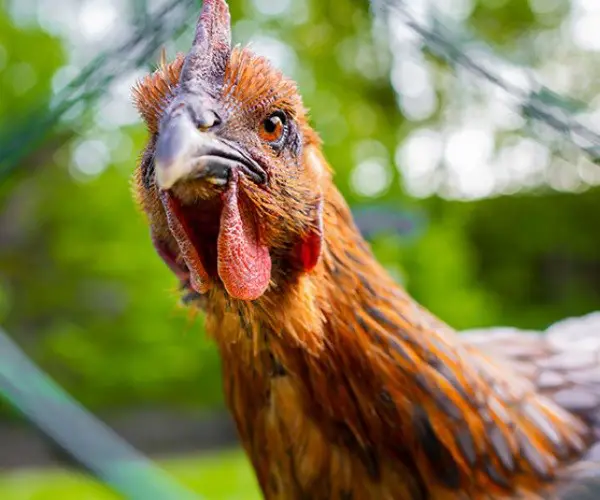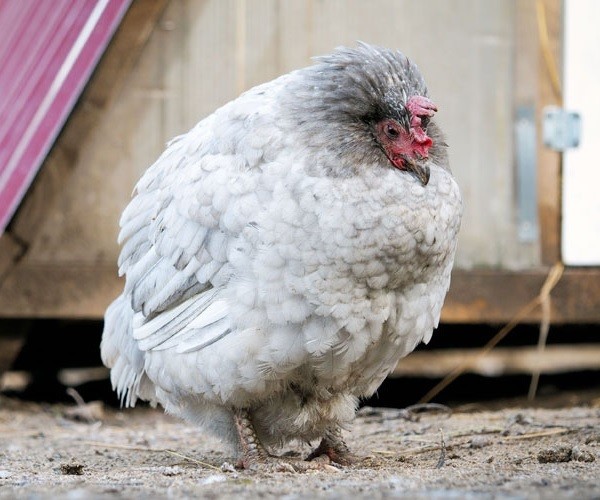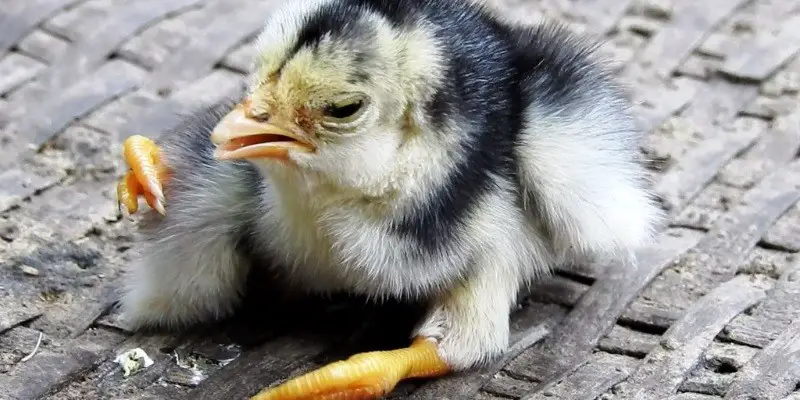Last Updated on December 17, 2023 by Pauline G. Carter
There are a lot of debates out there about whether or not chickens cry. Some people say that they do, and some people say that they don’t. So, what’s the truth?
Do chickens cry? The answer is a bit complicated. Chickens do have tear ducts, and they can produce tears.
However, it’s unclear whether or not they actually cry in the same way that humans do. For example, we cry when we’re sad or upset. It’s a way to release our emotions.
Chickens, on the other hand, might produce tears for different reasons. For example, they might produce tears to clean their eyes or to protect them from the sun.
Do Chickens Cry? It’s a common question among animal lovers – do chickens cry? The answer, unfortunately, is a little complicated.
On the one hand, chickens do have tear ducts, and they do produce tears. However, these tears are generally not produced in response to emotional distress, but rather to keep the chicken’s eyes healthy and free of debris. So while it’s technically correct to say that chickens do cry, it’s probably not in the way that you’re thinking.
Chickens may not shed tears of sadness, but they do have other ways of communicating their emotions. For example, chickens will often make a soft cooing noise when they’re content, and they’ll make a loud, distressed squawk when they’re frightened or in pain. So even though chickens may not cry in the traditional sense, they’re still capable of expressing a wide range of emotions.
So if you’re ever wondering how your chicken is feeling, just take a listen – you might be surprised at what you hear.
Why are my chickens crying?

There are many reasons why chickens may cry or make distress calls. Common causes include fear, hunger, thirst, injury, and illness. Chickens are social animals and hate being alone.
If they are isolated from the flock, they will cry out in distress. Chickens will also cry out if they are scared or feel threatened. Hunger and thirst are also common causes of crying in chickens.
Chickens need a constant supply of food and water, and if they are not getting enough, they will cry out in hunger or thirst. Injury and illness are also common causes of distress calls in chickens. If a chicken is hurt or feels ill, it will cry out in pain or discomfort.
If you think your chicken is crying due to one of these reasons, try to address the issue. If the chicken is isolated, try to reintroduce it to the flock. If the chicken is scared or feels threatened, try to make it feel more secure.
If the chicken is hungry or thirsty, make sure it has access to food and water. If the chicken is injured or ill, seek veterinary care. Most of the time, chickens will only cry out when they are in distress.
However, sometimes chickens will make happy vocalizations, such as when they are greeted by their owner or given a tasty treat. If you think your chicken is crying for any other reason, it is best to consult a veterinarian.
How can you tell if a chicken is sad?

There’s no definitive answer to this question since chickens can’t express their emotions in the same way that humans do. However, there are some signs that you can look for that may indicate that a chicken is sad or unhappy. For example, if a chicken is huddled in a corner and not interacting with other chickens, this could be a sign that something is wrong.
Chickens are also known to make a soft cooing sound when they’re sad or upset. If you notice your chicken making this sound, it’s a good idea to check on them to see if they’re okay.
Do chickens have emotional feelings?
Yes, chickens have emotional feelings. Chickens are social creatures that communicate with each other through body language, vocalizations, and visual cues. They form close bonds with other chickens and can become anxious or stressed when they are separated from their flock mates.
Chickens also have a hierarchy within the flock, with each chicken knowing its place in the pecking order. This hierarchy can change over time, as chickens gain or lose weight, lay eggs, or become ill.
Do chickens get depressed?
Chickens are interesting creatures and are known to have distinct personalities. Some people believe that chickens can get depressed, but there is no scientific evidence to support this claim. Chickens do not have the ability to experience emotions like humans do, so it is unlikely that they experience depression in the same way that we do.
However, there are some signs that chickens may show when they are feeling stressed or anxious. For example, they may stop eating, stop laying eggs, or become more aggressive. If you think your chicken may be depressed, it is important to consult a veterinarian to rule out any medical causes for their symptoms.
Chicken raised for meat is convinced he’s a dog
Do chickens cry tears?
No, chickens do not cry tears. Chickens have a third eyelid, called a nictitating membrane, which helps keep their eyes clean and moist. This membrane can sometimes give the appearance that chickens are crying, but they are not.
Do chickens have feelings?
It’s a common question asked by animal lovers: do chickens have feelings? The answer, according to experts, is yes. Chickens are social creatures that form strong bonds with one another and with their human caregivers.
They experience a wide range of emotions, from fear and anxiety to happiness and contentment. Like all animals, chickens are equipped with a brain that allows them to process emotions. In fact, chickens have a relatively large brain for their body size, which suggests that they’re capable of more complex thought than we often give them credit for.
When it comes to emotions, chickens display many of the same behaviors as other animals. They preen and groom themselves when they’re happy, and they huddle together for warmth and comfort when they’re scared or anxious. Chickens also have distinct vocalizations that communicate different emotions, from contentment to fear.
So, next time you see a chicken, take a moment to consider all the complex emotions that may be going on inside its head. Chances are, it’s feeling just as much as you are.
Do chickens get sad when another chicken died?
When a chicken in a flock dies, the other chickens may appear to be sad or depressed. This is because they are social animals and form strong bonds with one another. The death of a chicken can disrupt the social hierarchy of the flock and cause stress to the other chickens.
Why do chickens cry at night?
Chickens are interesting creatures and they have a variety of vocalizations that they use to communicate with each other. One vocalization that chickens make is called “crowing.” Crowing is most often associated with male chickens, but female chickens will crow occasionally as well.
Chickens also make a vocalization called “clucking.” Clucking is a general term used to describe the various sounds that chickens make to communicate with each other. Chickens will also make a sound called “purring” when they are content.
So, why do chickens cry at night? There are a few reasons why chickens might make this vocalization. One reason is that they are trying to roost, or find a place to sleep for the night.
Chickens are social creatures and they like to sleep in groups. If a chicken is separated from the group, it will cry out in an attempt to reunion. Chickens also cry at night if they are feeling threatened or frightened.
If a predator is in the area, chickens will make this vocalization to warn the others. Chickens may also cry at night if they are sick or in pain. If you hear your chicken crying at night, it is best to check on it to make sure everything is okay.
Conclusion
Chickens are interesting creatures and many people are curious about their behaviors. One common question is whether or not chickens cry. Chickens do have tear ducts, but they do not produce tears like humans do.
However, chickens can make noises that sound like crying. This is usually due to distress or pain. If you see a chicken making these noises, it is important to check on the animal to make sure it is not suffering from an illness or injury.


